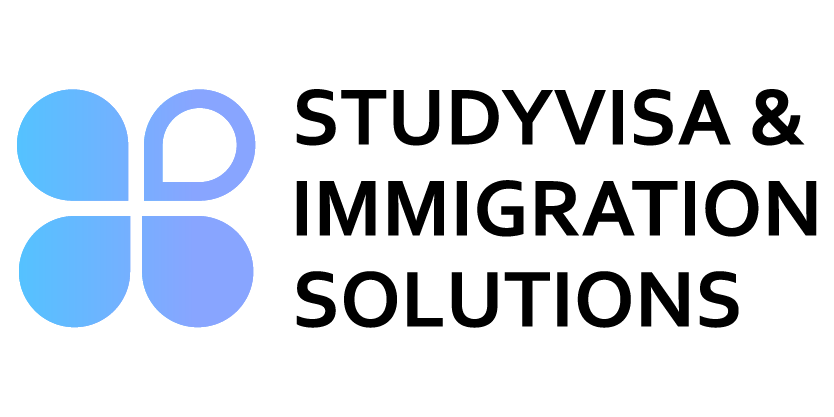Facts About Studying in Poland
| Point | Details |
|---|---|
| World-Class Education | Poland has numerous universities ranked among the top globally. Its education system is highly regarded, particularly in fields like engineering, medicine, and business. |
| Duration of Courses | Undergraduate degrees typically take 3 years, while postgraduate programs take 1.5 to 2 years. |
| Post-Study Work Opportunities | Graduates can stay in Poland for up to 1 year to look for a job or start a business under a post-graduation work permit. |
| International Student Support | Polish universities offer comprehensive support, including orientation programs, career services, and language assistance. |
| Affordable Living Options | Poland offers affordable accommodation and living costs compared to other European countries, with many budget options available. |
| Scholarship Opportunities | There are various scholarships for international students, such as the Polish Government Scholarships and university-specific options. |
| Health Insurance | International students must have health insurance coverage. EU students can use their EHIC card, while non-EU students need private health insurance or public insurance in Poland. |
| Cultural Diversity | Poland is home to students from all over the world, offering a multicultural experience in its cities and universities. |
| IELTS Requirement | Many universities require an IELTS score for non-native English speakers (usually 6.0–6.5), but some universities may offer alternatives or waive this requirement based on prior education in English. |
| Part-Time Work Opportunities | Students on a student visa are allowed to work part-time (up to 20 hours per week) during the academic year and full-time during holidays. |
| Student Discounts | Students can access discounts on transportation, museums, and other services by showing their student ID. |
| Tuition Fees | Tuition fees for non-EU students typically range from EUR 2,000 to EUR 7,000 per year, depending on the program. |
| Visa Requirements | International students must apply for a student visa (or residence permit), providing proof of enrollment, financial means, and accommodation. |
| Weather Conditions | Poland has a temperate climate with cold winters (November to March) and warm summers (May to September). Students should be prepared for cold temperatures during the winter months. |
| Global Recognition | Degrees from Polish universities are recognized globally, and many Polish universities have partnerships with universities across the world. |
Best Courses to Study in Poland
- Business & Management
- Computer Science & IT
- Engineering & Technology
- Medicine & Healthcare
- Architecture & Urban Planning
- Law
- Social Sciences & Psychology
- Humanities
- International Relations
- Economics
Intakes in Poland
Poland generally has the following intakes:
- Fall Intake (October to November)
- Spring Intake (February to March)
Some universities may offer additional intakes for certain courses.
Cost of Studying in Poland
| Program Level | Average Tuition Fees (EUR/year) |
|---|---|
| Undergraduate | EUR 2,000 – EUR 7,000 |
| Postgraduate | EUR 2,000 – EUR 6,000 |
Cost of Living in Poland
| Particulars | Average Monthly Costs (EUR) |
|---|---|
| Accommodation | EUR 200 – EUR 500 |
| Food | EUR 150 – EUR 300 |
| Transport | EUR 20 – EUR 50 |
| Health Insurance | EUR 20 – EUR 40 |
| Entertainment | EUR 30 – EUR 100 |
Requirements to Study in Poland
Qualification Requirements
| Course Level | Qualification |
|---|---|
| Undergraduate | High school completion (12th grade) with a minimum percentage (usually 60%-75%). |
| Postgraduate | Bachelor’s degree with a minimum GPA of 2.5-3.0 or equivalent. |
| PhD | Bachelor’s and Master’s degree with a minimum GPA of 3.0 or equivalent. |
Documents Required to Study in Poland
- Application form
- Passport-sized photos
- Valid passport
- Birth certificate
- Proof of English language proficiency (IELTS, TOEFL, or equivalent)
- Academic transcripts and certificates
- Statement of Purpose (SOP)
- Letters of Recommendation (LOR)
- CV/Resume
- Proof of financial means
- Health insurance proof
Entrance Exams for Studying in Poland
- MBA and Business Courses: GMAT (may be required by some institutions)
- Undergraduate Law Courses: National Law Admission Test (NLAT)
- Medical and Health-Related Courses: Medical School Entrance Exam
Language Requirements in Poland
Many universities in Poland offer programs in English, and proficiency in the English language is usually required. Accepted language tests include:
- IELTS (6.0–6.5)
- TOEFL (80–100)
- PTE (58–67)
Scholarships for Study in Poland
Some of the scholarships available for international students include:
- Polish Government Scholarship
- Erasmus+ Scholarship
- University-Specific Scholarships
- Visegrad Fund Scholarships
- Ignacy Łukasiewicz Scholarship Program
Popular Universities in Poland
- University of Ecology and Management in Warsaw (UEM), Warsaw
- UEM is known for offering high-quality programs in environmental studies, business, management, and engineering.
- Coventry University, Wroclaw (Poland Campus)
- The Wroclaw campus offers undergraduate and postgraduate courses in business, engineering, and IT, with strong connections to the UK campus.
Visa and Immigration Requirements for Poland
To study in Poland, international students must complete the following steps:
- Student Visa Application
- Submit the required documents, including proof of enrollment, financial means, accommodation, and health insurance.
- Proof of Accommodation
- You will need to show proof of accommodation arrangements in Poland (university dorms or private housing).
- Financial Proof
- You must demonstrate that you have enough funds to cover your tuition fees and living expenses during your stay.
Weather in Poland
Poland experiences a temperate climate, with cold winters (from November to March) and warm summers (May to September). Winter temperatures can drop below freezing, while summer temperatures are usually mild to warm.

